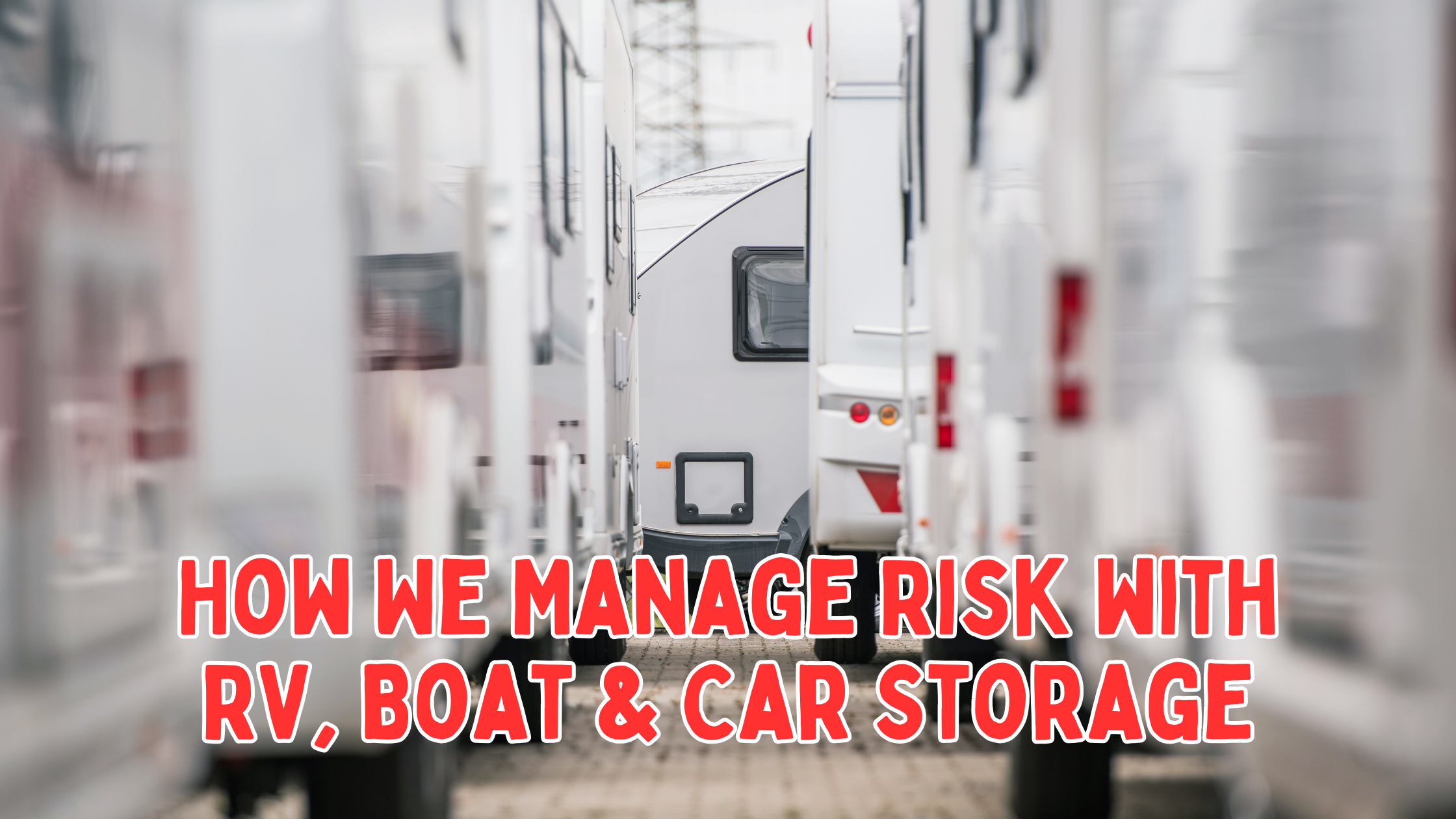Expanding Opportunities for Investors: How We Manage Risk With RV, Boat & Car Storage
We’ve talked before about the importance of protecting our facilities, as those facilities are what help our investors earn passive income and grow their net worth. In fact, being able to purchase insurance that protects us financially against natural disasters, theft, vandalism, and damage is what makes real estate investing so appealing. If something happens to your investment in stocks and bonds, you tend to be out of luck. Traditional investment vehicles lack that layer of protection, which can make them less reliable than some alternative investment opportunities.
Speaking of insurance, it’s also important to note that we require tenants to carry an insurance policy or protection plan on the property contained within their unit. This eliminates our liability, should something happen to the facility that impacts a customer’s property. However, new trends in self-storage usage are making this aspect of protection complex, as more customers depend on facilities to store titled property, like boats, RVs, and classic cars.
This may have you wondering, “Is there anything wrong with letting a customer store their classic Corvette at a self-storage facility?” The answer is no, many facilities are well-equipped to keep vehicles on site. However, doing so presents new risks, complications, and considerations for facility owners and operators.
Let’s explore what those risks are, and how you can reduce liability if you’re considering investing in a self-storage facility.
How Does Titled Property Change Liability?
There are a few key differences between storing commonplace items (like antiques, furniture, seasonal decor, etc.) in a 10’x10’ unit and storing titled property on the premise (especially outdoors).
High-Valued Property
First, titled property tends to be higher valued items as compared to other types of personal property — which can make it a greater target for theft or vandalism. As we mentioned before, our Belrose facilities require tenants to obtain their own protection, which takes the liability off of our shoulders.
In addition, we ensure our facilities are properly monitored and secured. It’s worth noting, however, that if expensive property (like boats and RVs) are visible from outside the property, there’s a chance it could tempt intruders and burglars to enter the premises.
Some facilities do include a “limitation of value” provision in their lease, indicating a maximum value of storage unit contents (say $10,000). Of course, many titled properties exceed this value, which means facility owners may need to create an addendum or alternate agreement for this type of storage.
Valet Parking and Operation
Depending on the configuration of the facility, customers may not always be able to park the vehicle in its intended storage location themselves. Or, owners may prefer to do it, since they’re more familiar with the space (and what to protect the other property already stored on-site).
In the event the facility operator needs to operate and drive a piece of titled property, they’ll need written permission from the property owner. Otherwise, they risk being liable for damages.
Lien Rights of Self-Storage Facilities
Normally, self-storage facilities have the right to auction off the contents of a unit in the event a renter stops paying or abandons the unit. Unfortunately, facility owners don’t have the same right to sell off a piece of property if it’s titled. In order to sell the property, the facility owner must obtain the title to the property first. Perhaps the property owner will willingly sign it over (though this is not a common occurrence, especially if they’ve essentially abandoned the property).
The process will vary by state and property type, but facility owners will have to spend time and effort obtaining the title in other ways — typically through the government agency that initially registered the property.
This can put many hurdles in the way between you and recouping storage fees, in the event the owner stops paying them.
Local Government Restrictions
Before allowing customers to store certain property, like double-axled vehicles, on your facility’s parking lot, you’ll need to check with your local township or county for potential restrictions. Some governments have ordinances in place that restrict the storage of large vehicles or vehicles in noticeable disrepair within so many feet of a roadway. Or, you may need to have your property rezoned for vehicle storage.
Staying On-Trend With Self-Storage Opportunities
There’s more to consider than meets the eye when it comes to storing titled property, and it can be difficult to navigate laws, lien rights, and local regulations on your own. While it’s possible to invest in self-storage facilities on your own, it’ll require ample research. Otherwise, you’re at risk of taking on more liability than you realize (or desire).
Working with an experienced team like Belrose takes the burden and stress of navigating the due diligence process off your shoulders. Are you interested in learning about our latest investment opportunity? Join our Investor Portal now.

